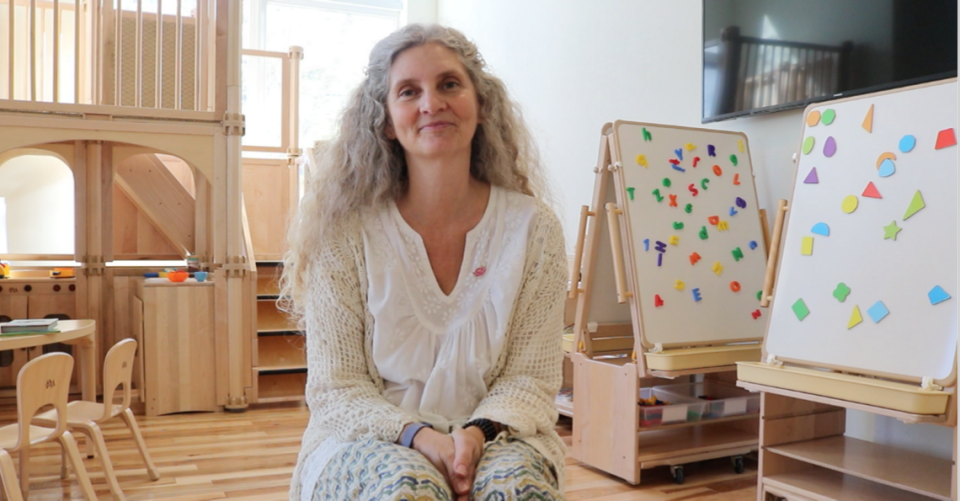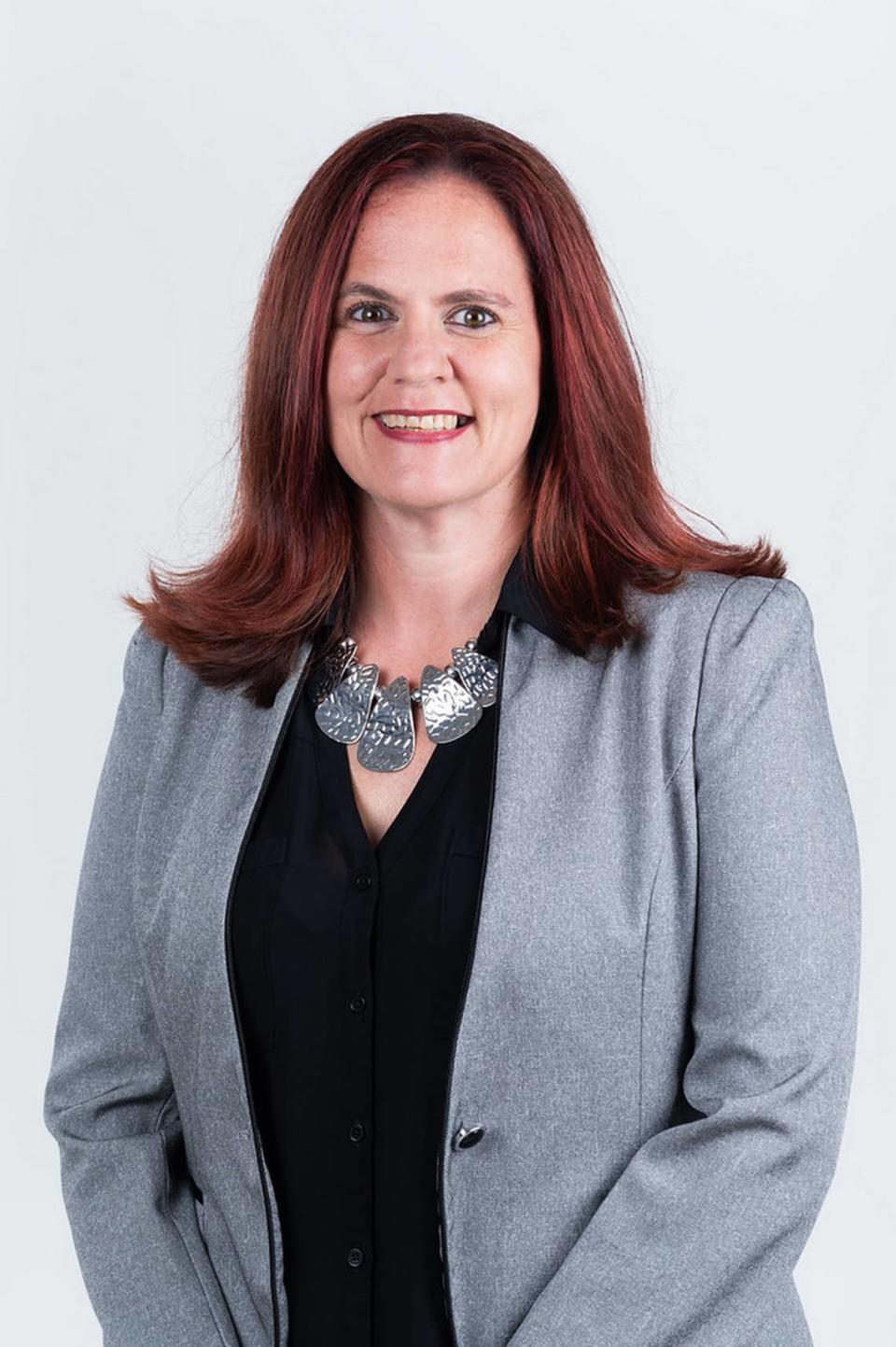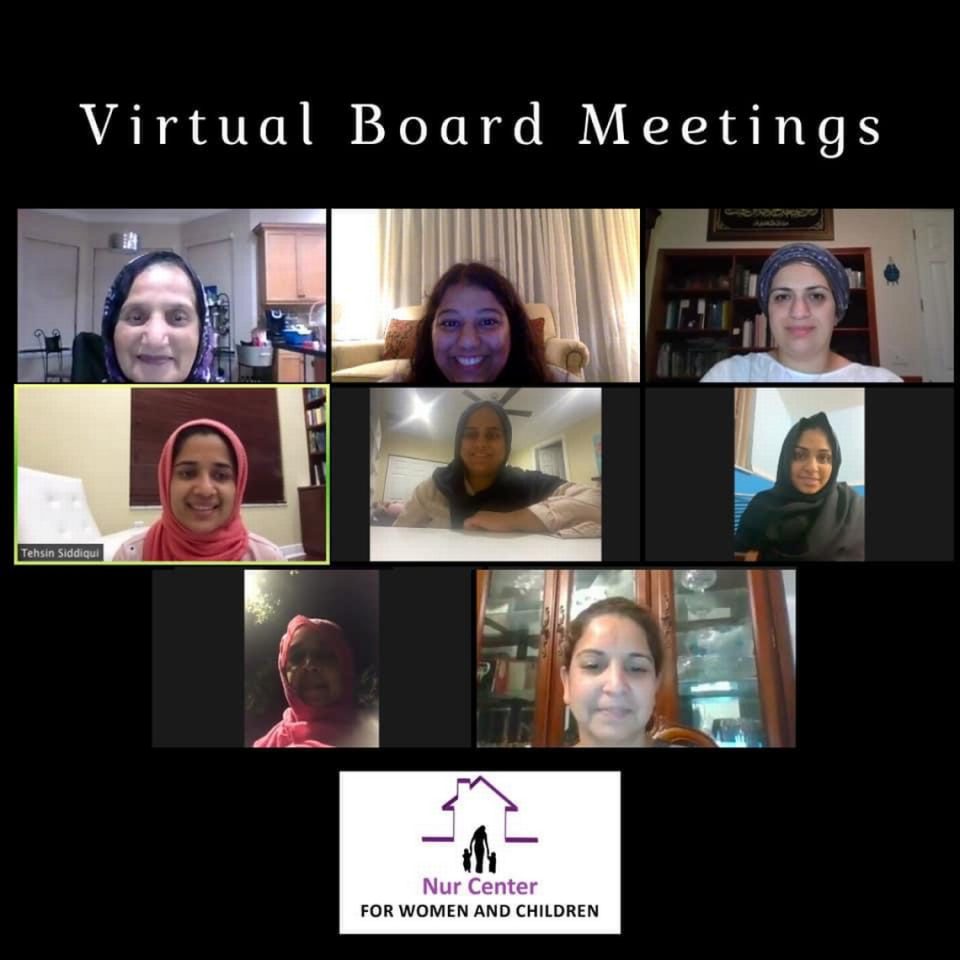Calls for help from battered women surged amid pandemic. These groups offered a lifeline
During pandemic lockdowns, when people sought shelter in their homes, domestic abuse victims faced an additional challenge — being trapped with their abuser.
South Florida shelters and nonprofits that help domestic violence survivors witnessed a flood of calls amid the pandemic, along with facing their own challenges of staffing, a drop in fundraising and keeping their doors open at a time when people needed them most.
Here are their stories:
Lotus House
The pandemic has brought in record numbers of women and children seeking shelter, said Constance Collins, president and CEO of Lotus House in Miami-Dade County. In 2020, the nonprofit, which can shelter up to 500 people a night, took in 1,364 women and children. This year, that number will increase, she said.
“In 2020, there was an overall 17.5 percent increase in the need for shelter. And when we go deeper, to look at domestic violence specifically, what we saw was a 37.6 percent increase in the percentage of sheltered women with domestic violence in 2020, compared with 2019,” Collins said.

About 70 percent of the women and children Lotus House shelters have experienced domestic and intimate partner violence, she said. The pandemic exacerbated the situation in many ways.
“You have unprecedented stressors in the home,” Collins said, including healthcare concerns, loss of income, on-the-job stress, lack of reliable childcare, school closures, virtual schooling, financial insecurity and loss of loved ones.
While a call for services increased, Lotus House staff found themselves challenged. “We don’t have the option, the luxury, if you will, of ever becoming remote here,” Collins said. “The whole point of a homeless shelter is that we are here for those who have no place to call home. And so we had to remain fully operational throughout the pandemic and continue to be.”
In response, Lotus House altered operating and programming protocols and stepped up cleaning and safety methods. Their volunteer base, which shrunk to a handful from a pre-pandemic corps of 2,000, continued to serve meals and assist with programming and emergency homeschooling.
Fundraising took a hit, with the cancellation of in-person events. This year a virtual fundraiser is taking its place. “This has been probably the most challenging year we have faced financially because we don’t have that cushion,” Collins said. “But actually, it’s in these times that we are needed the most, and that we need the community’s help the most.”
Women in Distress
Linda Parker, president and CEO of Women in Distress in Broward County, said at first there was a drop in calls for help.
“Initially, we saw a decrease, mainly due to the fact that people were not sure we were available because of COVID, and also the fear of coming into a community-based living situation in the middle of a pandemic,” she said.

They then helped victims work through the domestic violence in their home while staying in their home, which has been quite the challenge, she said. At the same time, Women in Distress created a food pantry and started a telehealth model of therapy visits via video.
Since October 2020, calls for services have shot up, Parker said. One of the biggest challenges has been victims on the path to rebuilding their lives who returned to their abuser because they didn’t have the financial means to sustain themselves, she said. “Sometimes they would choose the devil they knew over the devil they didn’t,” she said.
With 140 beds, Women in Distress provided emergency shelter to 519 people in 2020. “The housing market is one of the biggest challenges we have right now,” Parker said. “We’re trying to get people into affordable housing and transitional living ... and they’re full. The whole system is kind of backed up.” That has lengthened stays at the shelter from six to 12 weeks to about four to six months.
Parker said they are looking to reopen outreach offices that temporarily shuttered during the pandemic. A hybrid model of telehealth and in-person therapy will continue. Internally, staff members are stretched thin because the pandemic has limited fundraising efforts and “almost decimated the volunteer pool,” Parker said. “Luckily, we have some really great volunteers who stuck it out. ... We’re muddling through.”
No More Tears
With no shelter of its own, No More Tears draws on a cadre of volunteers and donors to provide emergency shelter, funds and support for housing, school, driving lessons and medical appointments for domestic abuse victims.
The pandemic has brought a cascade of calls seeking help to Somy Ali, No More Tears founder and CEO. Ali, a former Bollywood actress and abuse survivor, runs the all-volunteer nonprofit from her cellphone with assistance from college interns and volunteers who provide legal, medical and housing assistance.
“Pre-COVID, we got 18 to 20 referrals a day from police departments, hospitals, the Miami State Attorney’s Office, the Fort Lauderdale State Attorney’s Office,” Ali said. “After [the pandemic] started in March of 2020, I started getting 40 to 50 referrals a day.”

Since March 2020, No More Tears has housed 252 victims, she said. Survivors are put in safe housing for 10 days and then transitioned to an apartment. No More Tears helps with the first and last month’s rent, security deposit, groceries, legal help and other assistance.
“It’s just been crazy,” Ali said. “I have no staff and we run on volunteers,” many of whom stepped back during the pandemic for safety reasons. Funding also has been a problem, with in-person efforts transitioning to virtual events.
“I’m really looking forward to our Nov. 7 fundraising luncheon, because that usually brings in a significant amount of money, which keeps us afloat for the whole year.”
Nur Center
Though only a modest center with a capacity of 10 or 11, the Nur Center for Women and Children was able to help 60 domestic abuse victims in 2020, said Mishka Ahmad, manager and survivors’ advocate. The Nur Center offers culturally sensitive services tailored to Muslim, South Asian and Arab women, including Halal food, multilingual volunteers and immigration help.
“Our caseload since the pandemic started has more than doubled, maybe tripled,” Ahmad said. “People are having more financial issues, and more issues securing housing or maintaining the housing that they have.”

The pandemic has caused existing domestic problems to snowball, she said. “Especially in the beginning, when everything was locked down, people were stuck in the house with all their problems, which caused more fighting and caused more women to be abused.”
The Nur Center acts as a safe house for three months or more, depending on the case. It helps victims secure temporary restraining orders, file police reports, apply for food stamps and do simple tasks like opening a bank account.
“A lot of their husbands were in such control of their lives, that they did not allow them to drive or have ownership of any finances,” Ahmad said. “Even the ones that were allowed to work, the husband would garnish all of their checks and keep it for themselves.”
During the pandemic, the Nur Center, which is funded by private donations, halted its in-person volunteer program, but added two part-time workers to its staff of one. An annual fundraiser was held virtually.
“Even within the pandemic, we see generosity,” Ahmad said. “It hasn’t gone to zero, but it has definitely decreased. People are still generous with their finances to support such a good cause.”
How to help
LOTUS HOUSE
lotushouse.org; 305-438-0556
email: needshelter@lotushouse.org
NO MORE TEARS
nomoretearsusa.org; 954-324-7669
email: somy@nomoretearsusa.org
NUR CENTER FOR WOMEN AND CHILDREN
nurcenterfl.org; 866-278-6NUR (687)
email: nurcenterfl@gmail.com
WOMEN IN DISTRESS OF BROWARD COUNTY
womenindistress.org; 954-760-9800
Crisis hotline: 954-761-1133
email: info@womenindistress.org
Florida Domestic Violence 24-Hour Crisis Hotline: 800-500-1119
Miami-Dade County Coordinated Victims Assistance Center: 305-285-5900

